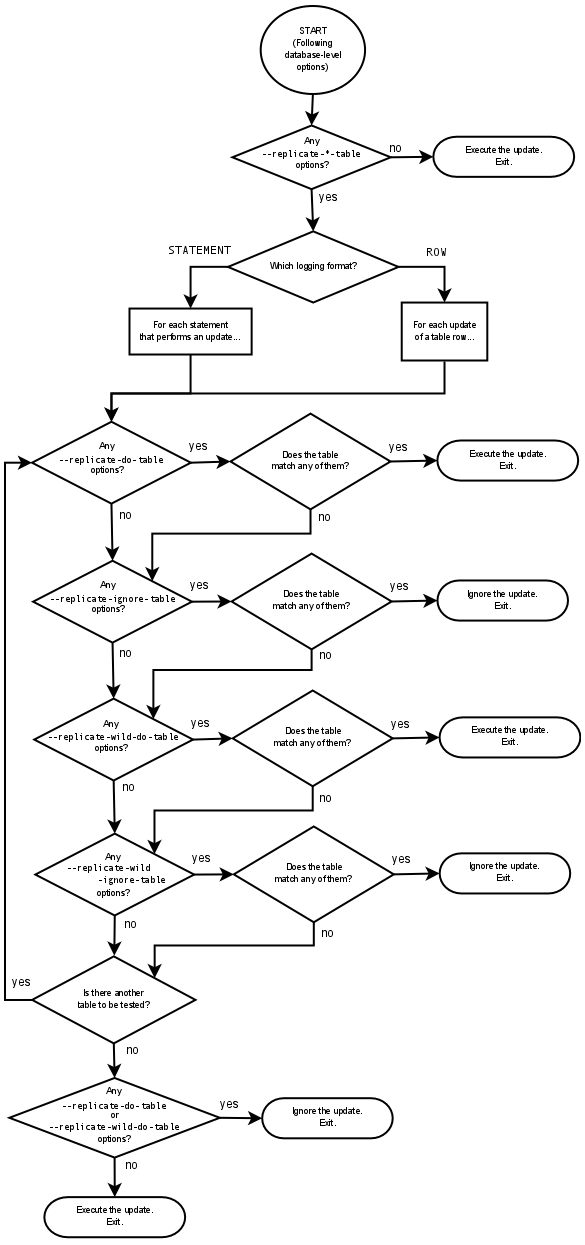The slave checks for and evaluates table options only if no matching database options were found (see Section 17.2.3.1, “Evaluation of Database-Level Replication and Binary Logging Options”).
First, as a preliminary condition, the slave checks whether statement-based replication is enabled. If so, and the statement occurs within a stored function, the slave executes the statement and exits. If row-based replication is enabled, the slave does not know whether a statement occurred within a stored function on the master, so this condition does not apply.
For statement-based replication, replication events represent
statements (all changes making up a given event are associated
with a single SQL statement); for row-based replication, each
event represents a change in a single table row (thus a single
statement such as UPDATE mytable SET mycol =
1 may yield many row-based events). When viewed in
terms of events, the process of checking table options is the
same for both row-based and statement-based replication.
Having reached this point, if there are no table options, the
slave simply executes all events. If there are any
--replicate-do-table or
--replicate-wild-do-table
options, the event must match one of these if it is to be
executed; otherwise, it is ignored. If there are any
--replicate-ignore-table or
--replicate-wild-ignore-table
options, all events are executed except those that match any of
these options. This process is illustrated in the following
diagram.

The following steps describe this evaluation in more detail:
Are there any table options?
Yes. Continue to step 2.
No. Execute the event and exit.
Are there any
--replicate-do-tableoptions?Yes. Does the table match any of them?
Yes. Execute the event and exit.
No. Continue to step 3.
No. Continue to step 3.
Are there any
--replicate-ignore-tableoptions?Yes. Does the table match any of them?
Yes. Ignore the event and exit.
No. Continue to step 4.
No. Continue to step 4.
Are there any
--replicate-wild-do-tableoptions?Yes. Does the table match any of them?
Yes. Execute the event and exit.
No. Continue to step 5.
No. Continue to step 5.
Are there any
--replicate-wild-ignore-tableoptions?Yes. Does the table match any of them?
Yes. Ignore the event and exit.
No. Continue to step 6.
No. Continue to step 6.
Are there any
--replicate-do-tableor--replicate-wild-do-tableoptions?Yes. Ignore the event and exit.
No. Execute the event and exit.